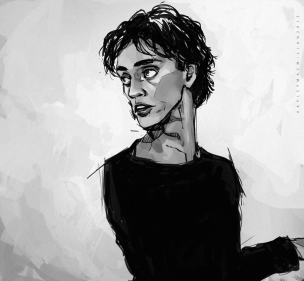P.s. This post might get a bit personal due to the subject, but as they say the personal becomes public, reflecting the culture. As well as there is the revelation to discover the actual personal story behind the dance which blew the internet up, behind the ‘big’ destiny of ballet-dancer and artist Sergei Polunin shown in the movie of Steven Cantor Dancer (please read the 1st Chapter of the review first).
The songs used in the movie were not used randomly in my opinion. Even the titles are significant because Iron Man and God Put A Smile Upon Your Face are reflective themselves for the main character of Dancer and the Ukrainian and the Russian and, I would presume, the Belarussian (you tell me after you finish reading this post, I am not very familiar with the culture of that country) cultures.
The film opens with the song Iron Man by The Black Sabbath and, first of all, the name already stands out, because Polunin himself could be seen as the Iron man with his muscles and physical ballet dancer’s strength as well as his personal strength as the person with the Slavic mentality and in concern of the struggles he went through.
Can he walk at all,
Or if he moves will he fall?
Is he alive or dead?
Has he thoughts within his head?
We’ll just pass him there
why should we even care?
Indeed the media did not care for the personal reasons when he left the Royal Ballet, it was just another good story to feed for masses. As I mentioned already, all the provoking actions he did were like a defensive reaction, to bring up attention, as a cry for help. His friends and classmates tell that he did not speak much of his personal family life; they knew just some episodes which they could only piece together. Sergei “suffered silently”: that is the feature of a Slavic person, even if it would sound stereotypically, but to hold emotions and feelings for himself, to fight them on his own. This is the mentality of the Eastern world, and by the Eastern world I mean Ukraine, Russia and Belarus. It is the mentality to stay strong, to fight, that there is no time to struggle, no one likes and wants whiny people around. The whole existence is a fight. 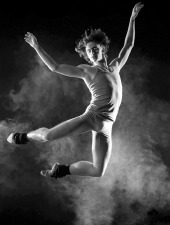 Who would do this if I don’t do it? Who would do it for me if I don’t do it? I talk from my own experience as well, and I exaggerate and generalize to some rate but that summarizes the image of Slavic person in the eyes of Western world, and explains the career success of Slavic person abroad. Slavic nations are workaholics, fighters, iron-made and purposeful ones: any person needs strength and willpower to stand up from the knees and go.
Who would do this if I don’t do it? Who would do it for me if I don’t do it? I talk from my own experience as well, and I exaggerate and generalize to some rate but that summarizes the image of Slavic person in the eyes of Western world, and explains the career success of Slavic person abroad. Slavic nations are workaholics, fighters, iron-made and purposeful ones: any person needs strength and willpower to stand up from the knees and go.
He was turned to steel
in the great magnetic field
I would associate those words with him mentally turning to steel, becoming indifferent to the world which is this magnetic field.
Nobody wants him
He just stares at the world
These words build up the association when he left the Royal ballet and he realized that nobody would want to take him for a job because of his reputation despite of his talent. Indifference turns into the breakdown and goes down to the depression state.
I know from my own experience that if you achieved something great you need to be fully aware that there is a weight of responsibility laying on your shoulders. It is clearly reflected in the film that Sergei was working so hard, twice more than the others: “it was a chance to get family together”. He knew that if he had messed it up, they would simply send him back home. I know that feeling, when you do not have a luxury of failing and to be ‘the second one’, I can fully understand it. The reaction of his classmates was fascination. It is not surprising that once the goal for which Sergei worked for was gone, he collapsed.
The family separated to go abroad to earn money to provide Sergei the opportunity to study first in Kiev and then in London: “We wished there was at least some kind of an outlook”, which expresses the frustration with life in Ukraine. “I wanted him to achieve something, not to repeat our life”, said the mother. “There was no life”, she continues meaning that there was only work. Everyone lived under the huge pressure, even Sergei himself. Childhood slowly escaped him: “Fun was over”.
In the second part of the movie Polunin goes back to visit his mother-city and I would assume to look for ‘the origins’ and answers. “To control does not mean to trust”, he said to his mother while drinking tea (very Slavic and very traditional ritual associated with home), leading to the conclusion that he could have achieved many things by himself. “The whole our life is a responsibility: each person is responsible for something” was the answer. Those words are familiar to me, and I think to any Slavic person of my generation and older. Many of those though try to run away from responsibilities, to find, in my opinion, false freedom, to be independent from anyone and anything, but to achieve independency means exactly to take responsibility and to be a host of own life.
The next song is by Coldplay God Put A Smile Upon Your Face, which immediately makes me think of stereotypes created by Western people about Slavic ones.
Where do we go nobody knows?
I’ve gotta say I’m on my way down
God give me style and give me grace
God put a smile upon my face
We are mistakenly are known to be brutal, harsh, emotionless, reserved, too serious, straight-faced; they are surprised that Slavic people do not smile, while, in fact, we do not smile without a reason behind. On the other hand, Slavic people do not understand when Westerns ask How are you? and then walk away without waiting for an answer. When we ask somebody how they are, it means we are actually interested in their lives, we are ready to hear all their news from best to worst ones. We will not pretend and express false emotions although they still could be misread. I know from my own experience that many people in Cyprus first thought that I am bitchy, because my face looked supposedly unfriendly and I did not smile to every single stranger. Thus sometimes I have learnt to put the smile on my face so I could be accepted.
The East and the West are 2 separate worlds: everything needs to be started from the beginning. One can easily see the difference between Kiev or Kherson landscape and London one. It is familiar to me how he describes the school abroad: “school looked like a painting!”, because I felt the same with Cyprus.
One of his friends says that when Sergei went to Russia, he did not get the value he desired because he had to earn glory and to prove to the hardest audience of the ballet world that he is worthy, so it was a new challenge for him. That is true that it is not easy to impress a Slavic person because the level of trust is heightened. This is reflected in culture, specifically in songs: in the Song about a friend by Vladimir Vysotsky the image of the true friendship is reflect. The friend is a person on whom you can rely as on yourself, who can be strong for you, and the friendship is something proved with time; Slavic people like to believe that real friends will stay with you for the life.
Slavic people might seem wild, yet they are highly cultural, secretive yet generous, brutal yet gentle and melodic: “graceful beast[s]”. 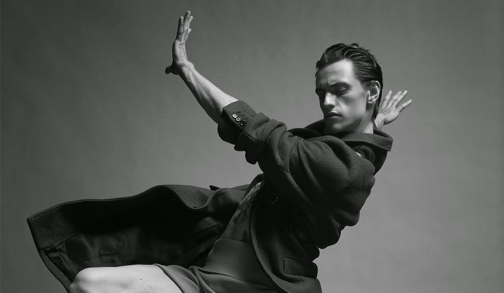 This again and again brings back to the desire of Slavic nations, especially Ukrainians, to be able to build a destiny by the own hands, physically and mentally, with own spirit’s strength and willpower.
This again and again brings back to the desire of Slavic nations, especially Ukrainians, to be able to build a destiny by the own hands, physically and mentally, with own spirit’s strength and willpower.
There was a lot said already in the 1st post about this Take me to Church dance but the comment on the lyrics which I could make is in the regard of his talent:
I was born sick, but I love it
Command me to be well
His parents were telling the stories how flexible Sergei was from the time he was a baby, so the decision was obvious – to do gymnastics and later ballet. His mother did not really know what ballet was, but she tried to guide him anyways wishing better destiny for the son. Sergei went along eventually coming to the point, when he doubted himself if he was what he strived to be. But it was late anyways, because he could not be well again, he became a ‘hostage’ of his own talent, own body and ballet, he is so talented he could not just leave it. So he learned to love it, to find positive sides, to transform it into smothing bigger.
 That is the reason why this dance was like a confession where he, almost naked, has exposed his true self so any sharpened knives-judgmens could hit him.
That is the reason why this dance was like a confession where he, almost naked, has exposed his true self so any sharpened knives-judgmens could hit him.
I can understand the feeling of being different: first, you are happy because you think are special, but later you feel more and more like an outcast who is being misunderstood, who is sick, who cannot turn back, but you learn to love it because you are a fighter and you are strong.
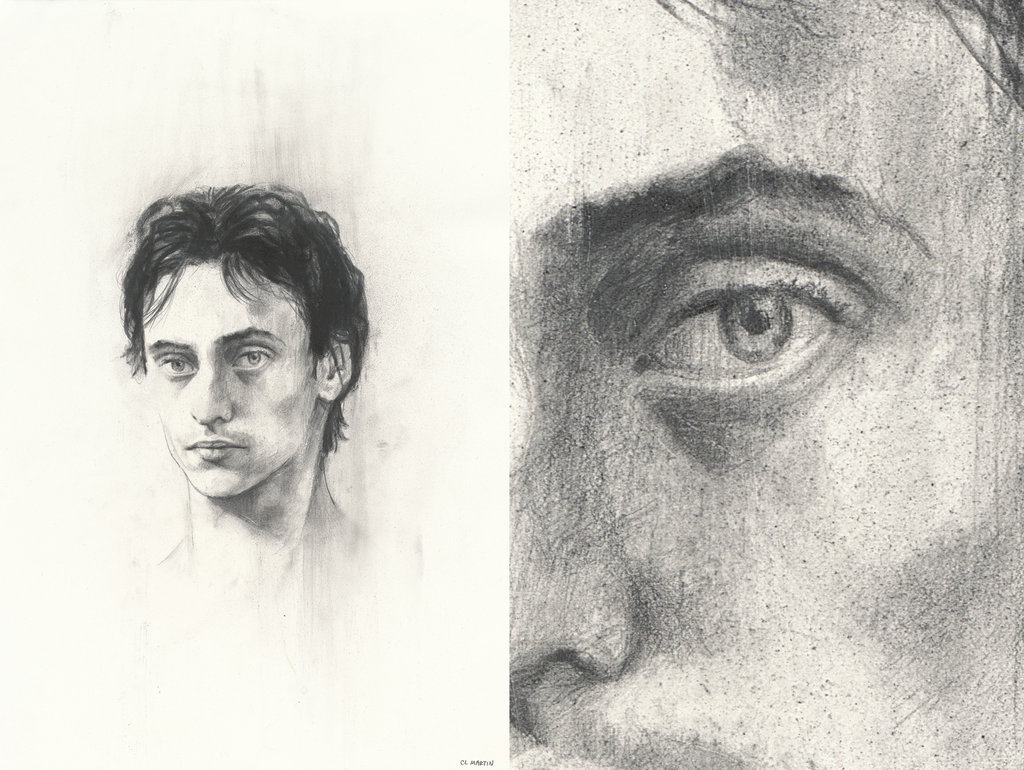
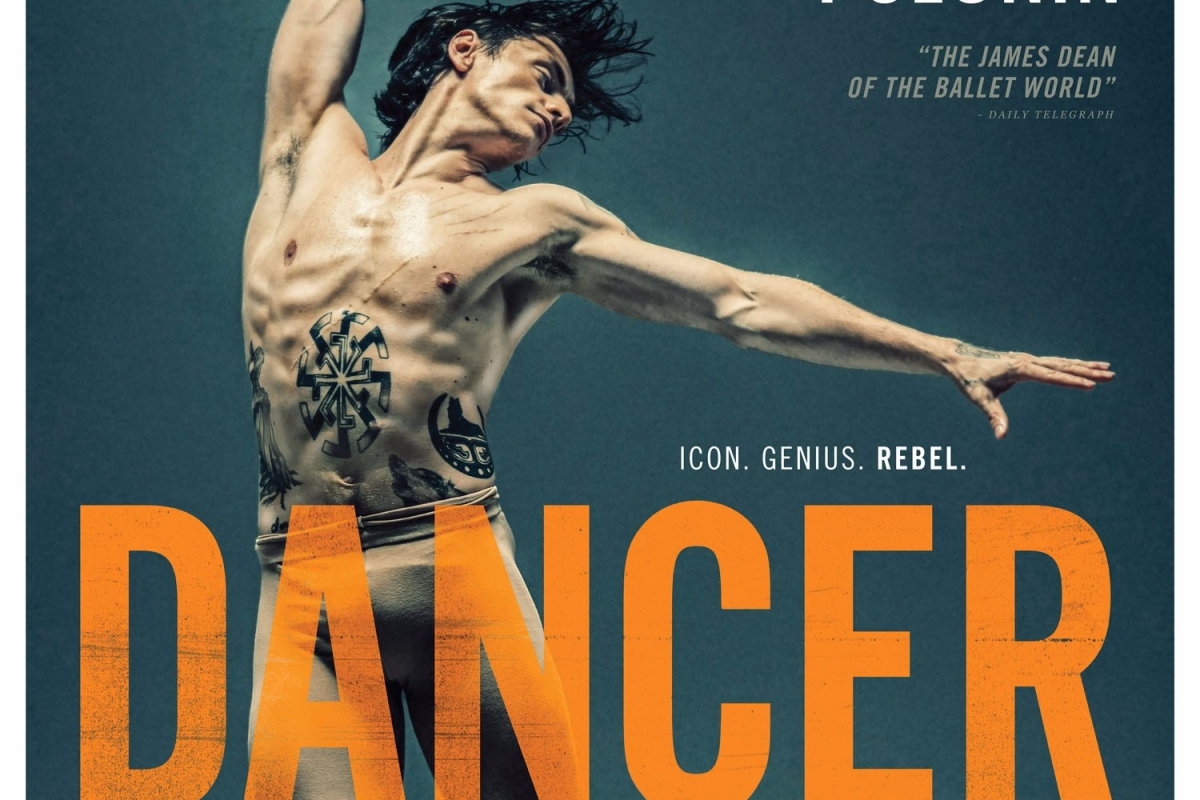
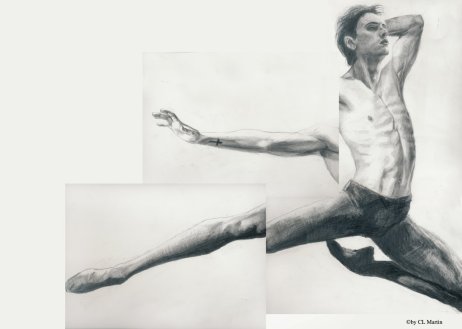

 Ironically enough at some point we see the shot of his foot with the tattoo
Ironically enough at some point we see the shot of his foot with the tattoo  The life of stage is completely different from what one imagines, although it supposedly represents the Reality. It is difficult to remain yourself and live your life when you have to be someone on stage. The shot: Sergei is pinned with peaks on the stage: a literal parallel to how he felt. No one can see you behind the curtain. This might be the reason why he started taking pills or drugs, so they could make him fly, so they make him forget. He hated and loved dancing, he became a prisoner of his own body and the urge to dance. The ballet is a combination of motivation and discipline, but there came the point when he lost both. Sergei strived to let himself to dance how he felt: “those seconds are worth dancing for”.
The life of stage is completely different from what one imagines, although it supposedly represents the Reality. It is difficult to remain yourself and live your life when you have to be someone on stage. The shot: Sergei is pinned with peaks on the stage: a literal parallel to how he felt. No one can see you behind the curtain. This might be the reason why he started taking pills or drugs, so they could make him fly, so they make him forget. He hated and loved dancing, he became a prisoner of his own body and the urge to dance. The ballet is a combination of motivation and discipline, but there came the point when he lost both. Sergei strived to let himself to dance how he felt: “those seconds are worth dancing for”. It was directed by David LaChapelle in Maui, Hawaii.
It was directed by David LaChapelle in Maui, Hawaii.
 I have been doing ballet for about 10 years and what I remember the most is that the dance is not just some beautiful movements but it is language of plasticity of our bodies, so I always aspired to put the message to deliver my story. I remember when I accidentally watched this video-dance I screamed to myself that I have not seen something like this in YEARS! This was magical and inspiring, and moreover I also wanted to make a video-dance inspired by Sergei Polunin. It is funny because in the movie they say that there were millions who had the same thoughts: “one day you’ll jump as high as he does”. I remember the post I shared on
I have been doing ballet for about 10 years and what I remember the most is that the dance is not just some beautiful movements but it is language of plasticity of our bodies, so I always aspired to put the message to deliver my story. I remember when I accidentally watched this video-dance I screamed to myself that I have not seen something like this in YEARS! This was magical and inspiring, and moreover I also wanted to make a video-dance inspired by Sergei Polunin. It is funny because in the movie they say that there were millions who had the same thoughts: “one day you’ll jump as high as he does”. I remember the post I shared on 